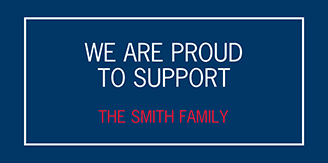ISBNs, CIP, RRPs and Legal Deposits - Goodness me what does it all mean?
It can be quite overwhelming when you're trying to get your head around everything you need to do to publish your book, can't it? Here's some stuff you'll need to know.
ISBN
An International Serial Book Number (ISBN) is required for all books and ebooks that are to be made available to the public for sale. A separate ISBN is also required for each individual format of the same book, such as softcover, hardcover, ebook and audio. ISBN's are issued by the ISBN agency, Thorpe and Bowker for Book Publishing Australia.
When first applying for an ISBN, you will need to open an account with Thorpe and Bowker, register yourself as a publisher, and pay an initial publisher set-up fee. If you are publishing a book and an ebook or if there will be future books, my advice would be to purchase your ISBN's in blocks (minimum block of 10). This is a much more affordable op...
27 January 2015
Book cover design
People often talk about the importance of a book's cover design, alluding that a great eye-catching cover can attract buyers and influence their decision to purchase the book. It is true that a well-designed cover is critical to your book having a professionally published appearance, but remember, self-published books are rarely displayed in the high street bookstores. Buyers on the internet browse online bookstores differently than they would a high street store. In most cases, they already have an author or title in mind, or they are searching by keywords or phrases (see book marketing). The book cover design remains a vital selling point online, but its impact can be reduced. This fact behind the sales of your book cannot be under-emphasised.
We all love a great book cover and we all want our book to look the best it can, but we need to keep the reality of what makes our book a great book firmly in the forefront: the content. It is vital...
22 December 2014
I want to self-publish – what’s next? If you’ve decided that self-publishing is the way for you to go, where do you start? You’ve heard terms like ISBN, CIP, Legal deposit, POD, ebook formatting, online distribution, social media marketing, and (take a deep breath) – you’re finding it all a bit overwhelming. Well, read on and I will endeavour to answer all your questions. Congratulations, you've chosen to self-publish. Now what? This next few posts will take you through the many processes of self-publishing and introduce you to the terms, phrases, and requirements that are involved. From now on, you are no longer just an author – you are now an author/publisher! Getting Started To begin with you need to decide how involved you want to be in the design and creation of your book/ebook. Some authors are comfortable with taking complete control over their project and are willing to learn the process from st...
26 November 2014
Which type of publishing is for you? Congratulations! You've finished your book, you've had it edited and you've done some research and learned all about the types of publishing that is on offer. As you consider your publishing options, here are a few things to bear in mind: Traditional Publishing: Most traditional publishers do not accept unsolicited manuscripts, so you will need a literary agent. Most literary agents do not accept unsolicited manuscripts, due to the huge numbers of manuscript submissions. Some publishers and agents will only consider first-time authors through referrals from a well-known, traditionally published author. Traditional publishers usually only accept manuscripts produced by authors with proven writing credentials and concise samples of their work. If you are adamant about choosing traditional publishing, expect to receive a few rejection slips (most authors ha...
25 October 2014

)

